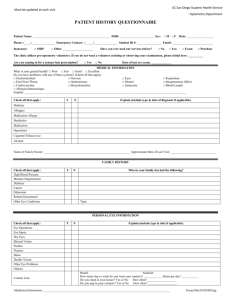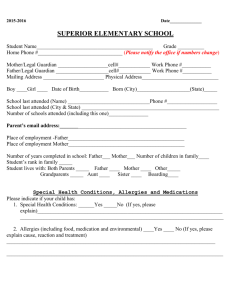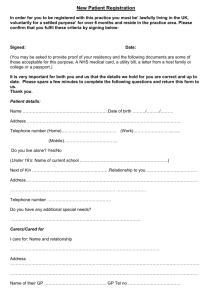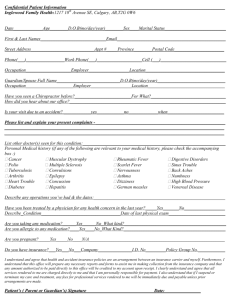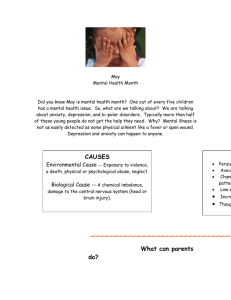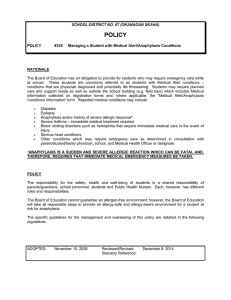Resources: - School District 67
advertisement
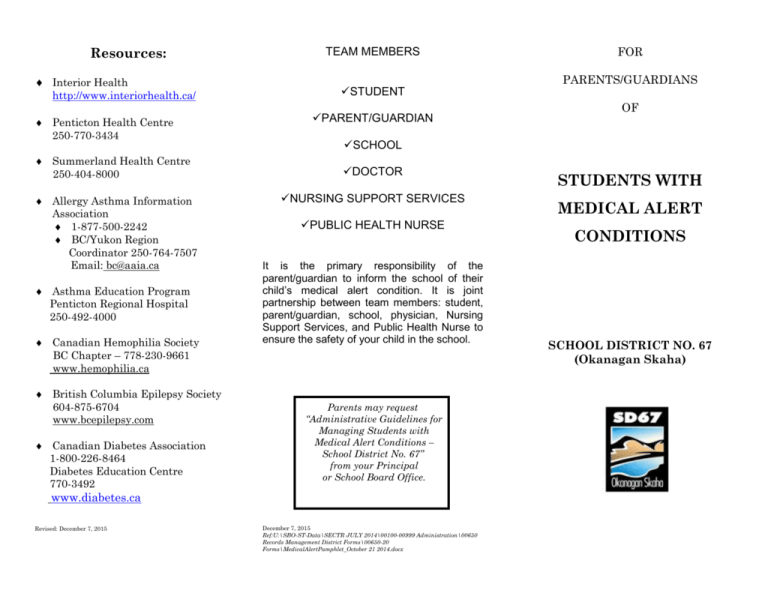
Resources: Interior Health http://www.interiorhealth.ca/ Penticton Health Centre 250-770-3434 Summerland Health Centre 250-404-8000 Allergy Asthma Information Association 1-877-500-2242 BC/Yukon Region Coordinator 250-764-7507 Email: bc@aaia.ca Asthma Education Program Penticton Regional Hospital 250-492-4000 Canadian Hemophilia Society BC Chapter – 778-230-9661 www.hemophilia.ca British Columbia Epilepsy Society 604-875-6704 www.bcepilepsy.com Canadian Diabetes Association 1-800-226-8464 Diabetes Education Centre 770-3492 TEAM MEMBERS STUDENT PARENT/GUARDIAN PARENTS/GUARDIANS OF SCHOOL DOCTOR NURSING SUPPORT SERVICES PUBLIC HEALTH NURSE It is the primary responsibility of the parent/guardian to inform the school of their child’s medical alert condition. It is joint partnership between team members: student, parent/guardian, school, physician, Nursing Support Services, and Public Health Nurse to ensure the safety of your child in the school. Parents may request “Administrative Guidelines for Managing Students with Medical Alert Conditions – School District No. 67” from your Principal or School Board Office. www.diabetes.ca Revised: December 7, 2015 FOR December 7, 2015 Ref:U:\SBO-ST-Data\SECTR JULY 2014\00100-00999 Administration\00650 Records Management District Forms\00650-20 Forms\MedicalAlertPamphlet_October 21 2014.docx STUDENTS WITH MEDICAL ALERT CONDITIONS SCHOOL DISTRICT NO. 67 (Okanagan Skaha) To support the school in providing for the safety of your child: MEDICAL ALERT 1. 5. There are students in school who may require emergency care by school staff. These conditions are physician diagnosed, and potentially life threatening. They require planned care and support inside, as well as outside the school environment, e.g. field trips. Give your school the correct information about your child’s medical condition when you register by filling out the “Medical Alert/Anaphylaxis Conditions Information Form” or “Diabetes Support Plan Form”. Review the “Medical Alert/Anaphylaxis Conditions” each September and at any time there is a change in your child’s condition. 2. If medication is needed at school that requires help from a school employee, fill out the “Request for Administration of Medication at School Form”. Your doctor will need to fill out Part B of this form. 6. Give medication to your school in the original container and replace it when it is outdated. Provide equipment to give medication, e.g. measuring spoon. Remove the medication supply from the school at the end of the school year. For children at risk for anaphylaxis parents should provide two single dose, single use auto-injectors (EpiPen®, Twinject™, Allerject™). Have your physician complete the “Request for Administration of Medication at School Form” each year before school starts, and at any time that there is a change in your child’s medication. LIFE THREATENING CONDITIONS INCLUDE: Diabetes Epilepsy Anaphylaxis and/or history of severe allergic reaction Severe asthma Blood clotting disorders such as hemophilia Serious heart conditions Other conditions which may require emergency care 3. If medication is needed at school that the student may self-administer, fill out the Self Administration of Medication at School Form. Your doctor’s signature is required as well as that of the Parent/Guardian of the student. 7. Your child should wear a medical alert bracelet or necklace. Ask at your drug store or call MedicAlert at 1-800-668-1507. 4. Talk to your Public Health Nurse about how training can be provided for the school staff members. 8. Medical alert response include: administration medication, calling 911 contacting parent/guardian. may of and


